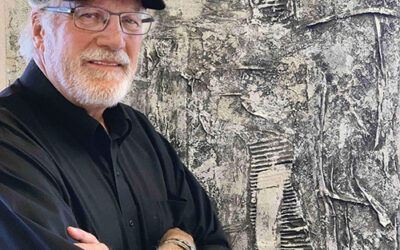Last week was a good one to be a Jew in San Luis Obispo: “Fiddler on the Roof” is on at the PAC, Marc Maron is at the Fremont Theater, and there is even an ongoing exhibit of the history of Jewish life at the SLO County Historical Museum. I can now find vegan kosher food from a new restaurant at the SLO Public Market.
But it’s not such a good time to be a Jew in the world. A few weeks ago in Colleyville, Texas, we were reminded that a Saturday morning Shabbat service can all too suddenly become a hostage crisis on an international scale. The violence streaming online was the opposite of our Shabbat; a sacred time to gather without threat or harm, to open our doors to all who are in need. The thought that one hostage considered using the prayer shawl, the tallit, to strangle the perpetrator, others who crept toward the exit, and the rabbi who threw a chair, are signs of the training which are now required and the tragedy of what kind of place our world has become.
We are blessed to live in the Goldilocks of California: not too big or too small, not bleeding red or blue, not the Bay Area and not LA. In my role as a rabbi and executive director of Hillel for Cal Poly, I was heartened by the emails and calls I received from our Chief of Police, Rick Scott, and Cal Poly’s VP for Student affairs, Dr. Keith Humphrey. Our other Jewish institutions also heard reassurance from Chief Ian Parkinson of the SLO County Sheriff’s Office and the Gala Pride and Diversity Center sent over a Statement of Solidarity. It was more than a message of hopes and prayers. It was an ongoing enduring relationship among professionals and friends. It was politics in its highest form. It is the bellwether of authentic community.
A year ago our local Jewish fraternity at Cal Poly was defaced with a swastika, a mark of hate on the doorpost next to the mezuzah, a sign for millennia that publicly marks a Jewish home. This act rippled to many of our community partners and activated a network of support to prepare, educate and share best practices for not only Jews who face a constant layer of fear in any society they live, but for the community at large to participate in understanding the long history of antisemitism and how it impacts our entire society.
The events in Colleyville, hearkened to the tragedy of Pittsburgh three years ago, before Covid, when the largest murder on sacred space in this country’s history happened. The lessons of Pittsburgh are not only to remember the past: minor slights and hatreds causing major bloodshed, a community committed to righteousness for the marginalized attacked for virtues that should be self-evident. The shooting at the Tree of Life Synagogue is a barometer of how community can change the way we see one another and ourselves.
Mark Oppenheimer, who just wrote a book on Pittsburgh, “Squirrel Hill: The Tree of Life Synagogue Shooting and the Soul of a Neighborhood,” reminds us that a synagogue shooting is a reflection of a whole community and not only one religion. Community support comes from unsung heros and bellwethers of leadership like police and politicians. Coffee shops and digital designers, Jewish, Muslim, Christian and of no religion have a major impact on how a community is seen by the world and heals through tragedy.
Our Jewish community is proud to host Mark at our second Jewish Festival of Learning, along with Hillel, AEPi, and the JCC-Federation on February 24 at Cal Poly. If any part of you wanted to reach out to your Jewish friend or family member on that Saturday that heard about the hostage crisis, then please come join us to learn and hear from this deep and open mind reflecting on the souls of our neighborhoods. Our Jewish Learning Festival conference is in part a response to the attack on the fraternity, but it is also in part a response to the heightened insecurity Jews feel in our own land. As we endure new protocols and strategies to this time of illness, may we too learn to prepare for and react to waves of hatred and violence that also plague our society, no matter how proud or calm it seems today.
Rabbi Micah Hyman,
Executive director of SLO Hillel at Cal Poly

